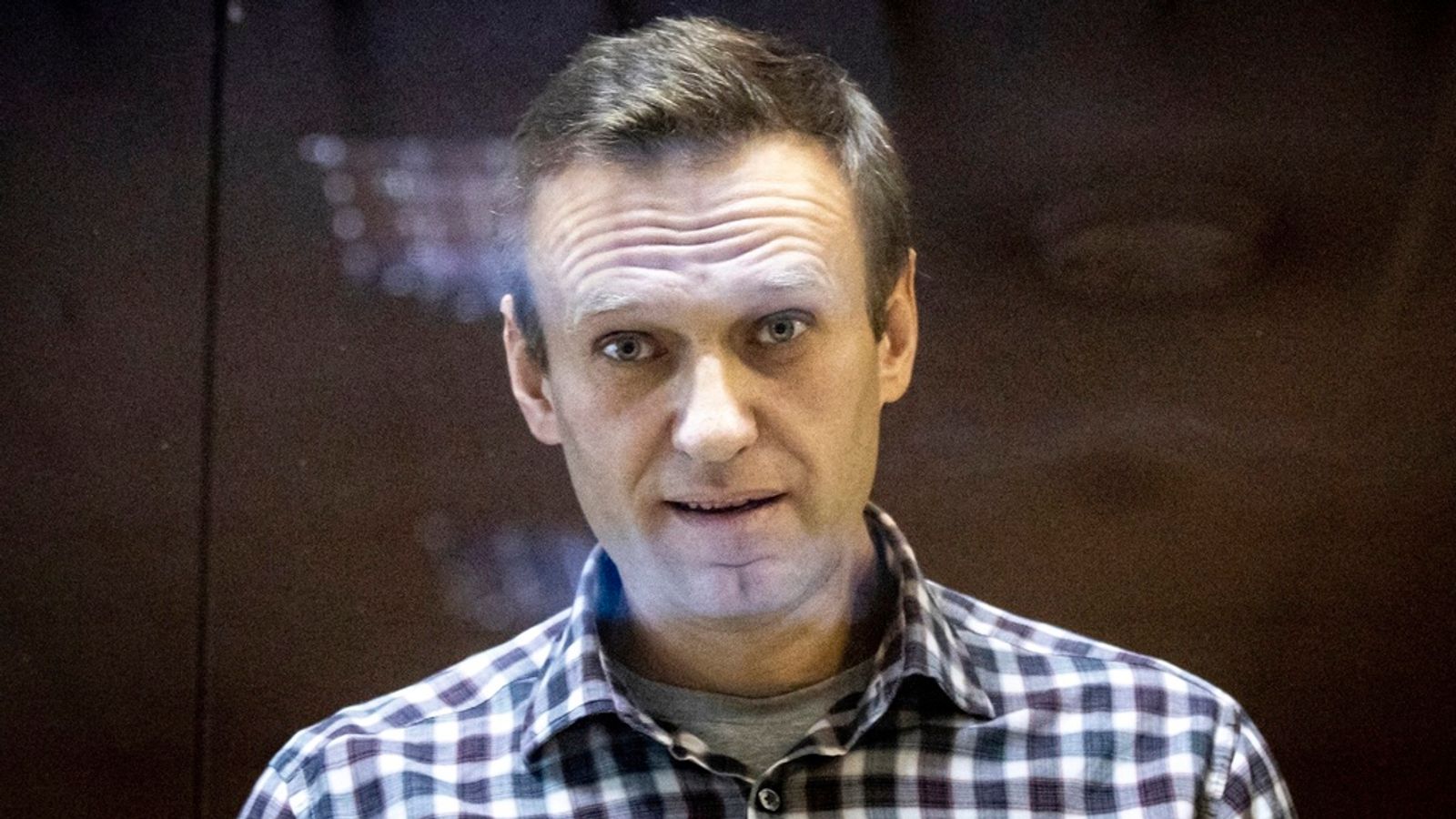Vladimir Putin’s main political opponent Alexei Navalny is missing after being removed by officials from a prison colony in Russia, his allies say.
The alarm was raised after the politician failed to show for a scheduled court appearance via videolink on Monday, with friends saying they had also not heard from him in six days.
The 47-year-old has been behind bars since January 2021 on what supporters say are politically-motivated charges.
Latest: Follow updates from the Russia-Ukraine war
Mr Navalny was transferred to the IK-6 jail in Melekhovo, east of Moscow, last year, but his spokeswoman Kira Yarmysh said staff there had now confirmed he had been removed from the facility.
She added on X, formerly Twitter: “Where they have taken him, they refuse to say.”
Ms Yarmysh said prison officials claimed he had not appeared via videolink as expected because of “electricity problems”.
It comes just days after Mr Putin announced he would stand for re-election next year – potentially keeping him in power until at least 2030.
Mr Navalny’s aide Leonid Volkov also posted on X that the timing was “0% coincidence and 100% direct manual political control from the Kremlin.”
He added: “It is no secret to Putin who his main opponent is in these ‘elections’. And he wants to make sure that Navalny’s voice is not heard.”
The politician has been one of the Russian president’s fiercest critics in recent years and helped organise large-scale anti-Kremlin protests.
But he was arrested in January 2021 after returning to Moscow from Germany, where he had been recuperating from being poisoned by a nerve agent.
Mr Navalny blamed the Kremlin for the attack, an allegation denied by Russian authorities.
Read more:
Who is the jailed Putin critic some Russians hope could overthrow him?
Russian president greeted with jets, horses, camels and flags at COP28
Be the first to get Breaking News
Install the Sky News app for free
Mr Navalny lost an appeal in September against a 19-year prison term for alleged extremist activity which was handed down in August and came on top of an existing 11-and-a-half year sentence for fraud and other charges.
Following the latest sentencing his allies said they had been expecting him to be moved to a “special regime” prison colony, the harshest grade in Russia’s prison system, but had not been given any further information.
Moscow correspondent
Navalny’s team say this kind of an extended period without contact with him is unprecedented.
It is quite possible that the authorities have decided now is the right moment to transfer him to a special regime colony, as mandated in his last 19 year sentence handed down in August.
If so, the transfer may take weeks (an unpleasant journey, most likely by rail), it may be weeks before his lawyers are informed where he is and even longer before they manage to get to him.
Given longstanding concerns over his health, this is worrying.
Leonid Volkov, a Navalny aide, posted that the timing of his disappearance was “0% accidental and 100% directly political manual control from the Kremlin.”
To date Navalny’s social media channels have managed a steady stream of commentary which purports to be from him, and may come via his lawyers though it may also be written for him by his team.
It is likely that his ability to communicate with the outside world will diminish or be cut altogether in a special regime colony, which is the harshest type of prison Russia has.
Access to lawyers will most likely be reduced also. So perhaps the decision was made to put him out of sight, out of mind at this early stage in the presidential campaign.
That said, his anti-corruption foundation – labelled a foreign agent in Russia and operating now from abroad – is already kicking up a storm and his disappearance just days before President Putin’s annual press conference brings the topic of Navalny back into the international consciousness, even if only a minority in Russia will take much notice.
Bear in mind it is only the very bravest who are prepared to represent him now. Three of his lawyers were arrested in October and now await trial on extremism charges.
So much for Russian justice.
Supporters said staff at another prison colony, IK-7, had also denied they were holding Mr Navalny.
However, it can take weeks for prisoners to be transferred between jails and families are sometimes not told about their relatives’ whereabouts until they reach their destination.
A Russian lawyer, who wanted to remain anonymous, told Sky News legal representatives usually submit an official request to find out where their clients are.
“Sometimes they [the colony authorities] simply show you on the database right on the spot, sometimes they just name the region where they are,” they said, but added that responses varied.
Please use Chrome browser for a more accessible video player
Mr Navalny denies all charges against him.
The Kremlin is yet to comment, although it has previously accused opposition figures such as Mr Navalny of having links with Western intelligence agencies which they say want to destabilise Russia.











